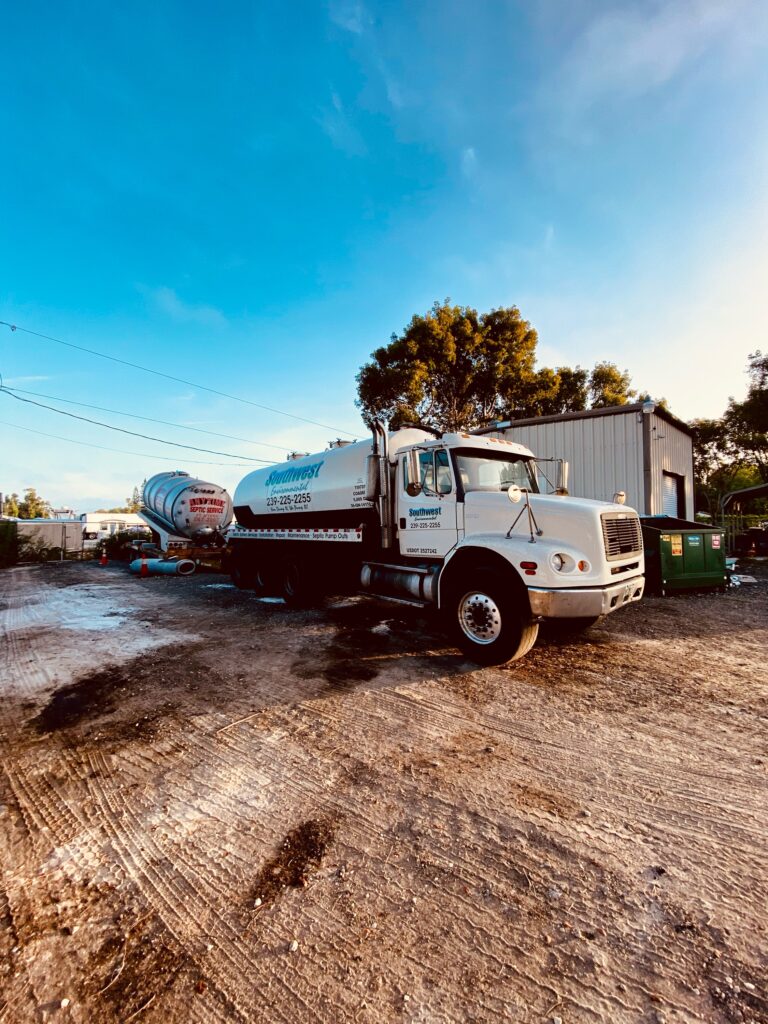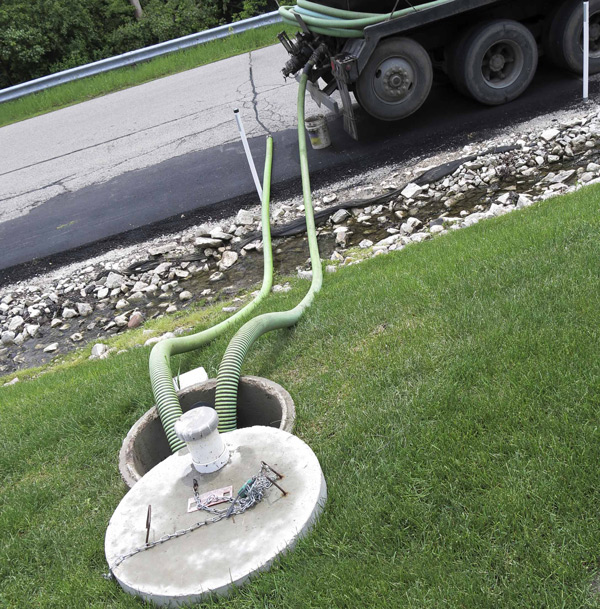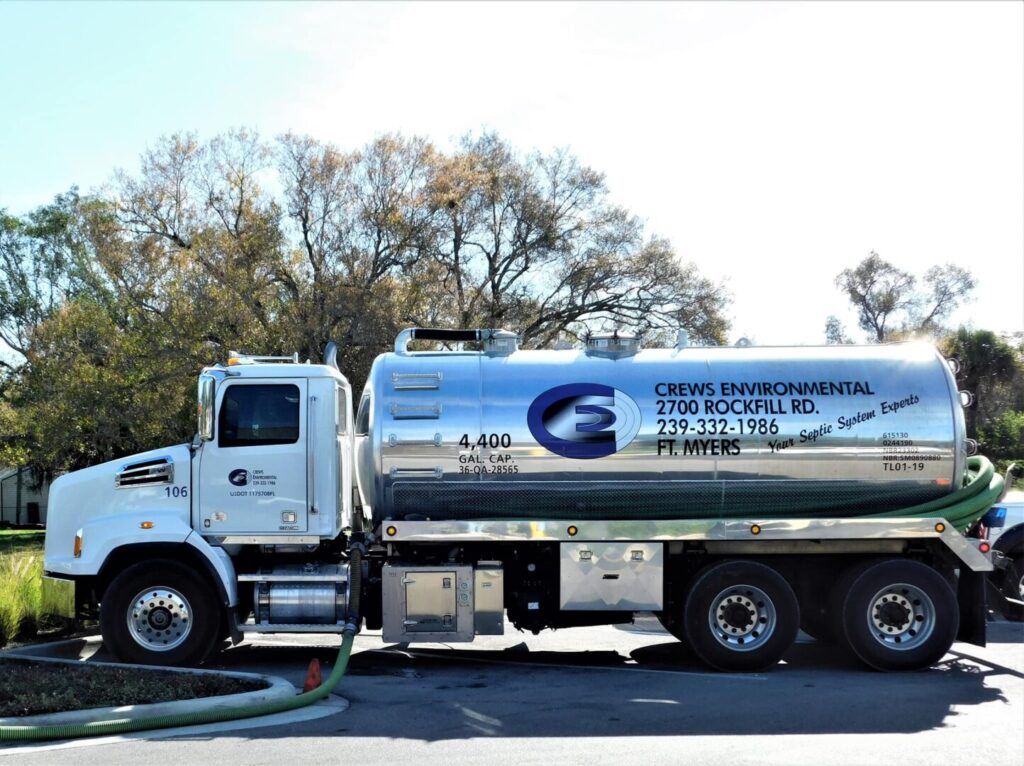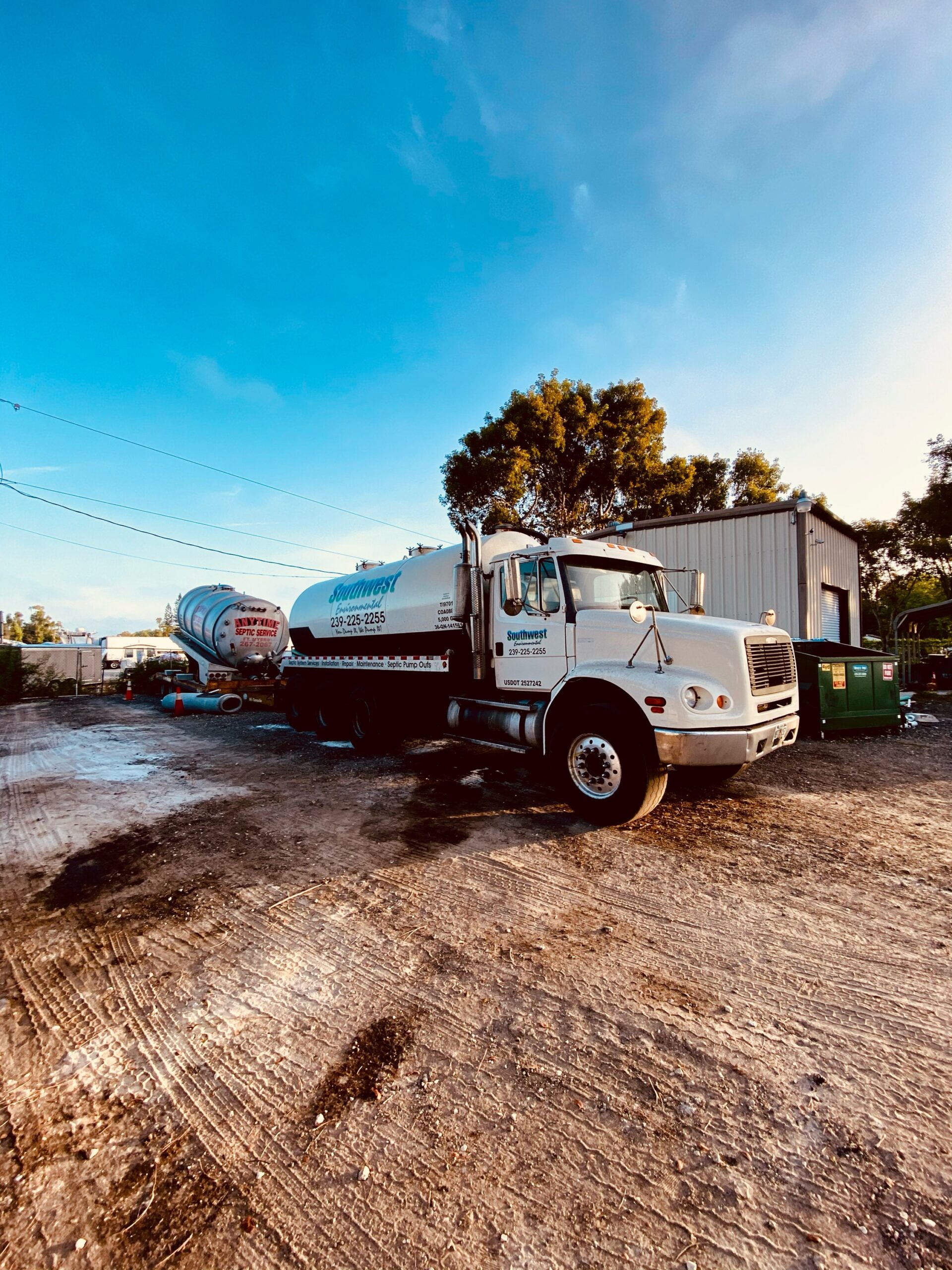In this article, you will learn all about septic tank pumping in Lehigh Acres. We will explore the importance of regular pumping, how it works, and the signs that indicate when it’s time for a pumping. We will also discuss the benefits of professional septic tank pumping services and offer some handy tips to maintain a healthy septic system. By the end, you’ll have a clear understanding of the process and be equipped with the knowledge to keep your septic tank running smoothly.
Understanding Septic Tank Pumping
What is a septic tank?
A septic tank is an underground wastewater treatment system that is commonly used in rural areas where there is no access to a centralized sewage system. It is made of concrete, fiberglass, or plastic and is responsible for collecting and treating the wastewater from your home. The septic tank separates the solids from the liquids, allowing the solids to settle at the bottom of the tank while the liquid flows out into a designated drain field.
What is septic tank pumping?
Septic tank pumping is the process of removing the accumulated solids and sludge from the septic tank. Over time, the solids and sludge build up, reducing the tank’s capacity and increasing the risk of clogs and backups. Pumping the septic tank ensures that it can continue to function properly and prevents any potential issues that could arise from an overflowing or clogged tank.
Why is septic tank pumping necessary?
Septic tank pumping is necessary to maintain the proper functioning of your septic system. If the solids and sludge are not removed regularly, they can clog the pipes, leading to slow-draining sinks and toilets, foul odors, and potentially costly repairs. Additionally, an overflowing septic tank can release harmful bacteria and pollutants into the soil and groundwater, posing a risk to both the environment and human health. Regular septic tank pumping is vital to prevent these issues and to extend the lifespan of your septic system.
Signs that Your Septic Tank Needs Pumping
Foul odor
One of the most common signs that your septic tank needs pumping is a foul odor coming from your drains, toilets, or yard. If you notice a persistent sewage smell, especially near the septic tank or drain field area, it is an indication that the septic tank is full and needs to be pumped.
Slow-draining sinks and toilets
If your sinks, toilets, or showers are draining slowly, it could be a sign that your septic tank is full. When the tank reaches its capacity, it cannot accommodate any more wastewater, causing the drains to drain slowly or become completely clogged.
Pooling water in the yard
When a septic tank is full, the excess wastewater has nowhere to go, leading to pooling water in the yard. If you notice standing water or excessively damp areas near the septic tank or drain field, it is a clear indication that the septic tank needs pumping.
Gurgling noises in the plumbing system
If you hear gurgling or bubbling noises when you flush the toilet or run water down the drains, it could be a sign that your septic tank is full. The gurgling noises occur when the wastewater encounters resistance due to the tank being full of solids and sludge.

Choosing a Septic Tank Pumping Service
Researching local septic tank pumping companies
Start by researching local septic tank pumping companies in Lehigh Acres. Look for companies that have been in business for a long time and have a good reputation in the area. Consider asking for recommendations from friends, neighbors, or your local health department.
Checking for proper licensing and certifications
When choosing a septic tank pumping service, it is crucial to ensure that they are properly licensed and certified. Septic tank pumping requires specialized knowledge and equipment, and hiring a licensed and certified company ensures that the job will be done correctly and safely.
Reading customer reviews and testimonials
Customer reviews and testimonials can provide valuable insights into the quality of service and customer satisfaction offered by a septic tank pumping company. Look for companies with positive reviews and testimonials from satisfied customers.
Getting multiple price quotes
To ensure that you are getting a fair price for septic tank pumping, it is recommended to obtain multiple price quotes from different companies. Keep in mind that the lowest price may not always be the best option. Consider the reputation, experience, and quality of service offered by each company when making your decision.
Preparing for Septic Tank Pumping
Locating the septic tank
Before the septic tank pumping service arrives, it is essential to locate the septic tank. The location can vary depending on the layout of your property, but it is typically buried underground and is marked by a manhole cover or an access point.
Clearing the area around the tank
Clear away any debris, plants, or obstacles that may obstruct access to the septic tank. The pumping service will need sufficient space to maneuver their equipment and access the tank easily.
Determine the best access point for pumping
Work with the septic tank pumping service to determine the best access point for pumping. They will need a clear pathway and sufficient space for their equipment to perform the pumping process efficiently.

The Septic Tank Pumping Process
Inspecting the tank and its components
Before pumping the septic tank, the pumping service will inspect the tank and its components for any signs of damage or issues. They will also check the inlet and outlet pipes to ensure that they are functioning correctly.
Removing the solid waste and sludge
Using specialized equipment, the pumping service will begin the process of removing the accumulated solid waste and sludge from the septic tank. The waste is suctioned out and transferred into a tanker truck for disposal at a designated treatment facility.
Cleaning and disinfecting the tank
Once the solid waste and sludge have been removed, the septic tank will be cleaned thoroughly. High-pressure water jets may be used to clean the tank and remove any remaining debris or buildup. The tank will also be disinfected to kill any harmful bacteria or pathogens.
Inspecting and repairing any damage or issues
After the pumping and cleaning process is complete, the septic tank pumping service will inspect the tank and its components once again to ensure that everything is in proper working order. If any damage or issues are detected, they will provide recommendations for repairs or further maintenance.
Maintenance Tips to Extend the Life of Your Septic Tank
Regularly pumping the tank
To prevent septic tank issues, it is crucial to have the tank pumped on a regular basis. The frequency of pumping depends on the size of the tank, the number of occupants in the household, and the amount of wastewater generated. As a general guideline, septic tanks should be pumped every 3 to 5 years.
Using water efficiently
Conserving water and using it efficiently can help extend the life of your septic tank. Avoid excessive water usage, such as long showers or leaving faucets running unnecessarily. Repair any leaks promptly to prevent the septic tank from becoming overloaded with excess water.
Avoiding flushing harmful substances
To maintain a healthy septic system, it is essential to avoid flushing harmful substances down the drains. Items such as grease, oil, feminine hygiene products, diapers, cigarette butts, and chemicals can cause damage to the septic tank, leading to clogs and other issues.
Being mindful of what goes down the drains
In addition to avoiding harmful substances, it is important to be mindful of what goes down the drains. Avoid excessive use of chemicals and opt for environmentally-friendly cleaning products. Additionally, do not dispose of large amounts of food waste or non-biodegradable materials down the drains.

Common Problems Encountered During Septic Tank Pumping
Blocked or clogged pipes
During the septic tank pumping process, it is not uncommon to discover blocked or clogged pipes. This can be caused by a buildup of solids, debris, or tree roots infiltrating the pipes. The pumping service will address these issues and provide recommendations for repairs or maintenance.
Broken or damaged septic tank components
Septic tank components can become damaged over time due to age, improper installation, or external factors. The pumping service will inspect the tank and its components for any signs of breakage or damage and provide guidance on necessary repairs.
Inadequate waste removal
In some cases, the pumping service may encounter inadequate waste removal due to a malfunctioning septic system or other underlying issues. They will assess the situation and provide recommendations on how to resolve the problem effectively.
Benefits of Regular Septic Tank Pumping
Prevents sewage backups and costly repairs
Regular septic tank pumping prevents sewage backups and the potential for costly repairs. By removing the solids and sludge from the tank, you reduce the risk of clogs and backups, saving you both time and money in the long run.
Maintains a healthy and hygienic environment
A properly maintained septic system contributes to a healthy and hygienic environment. Regular pumping ensures that wastewater is effectively treated and prevents the release of harmful bacteria and pollutants into the soil and groundwater.
Prolongs the lifespan of the septic system
By properly maintaining your septic system through regular pumping, you can significantly extend its lifespan. A well-maintained septic system can last for several decades, saving you the cost and inconvenience of replacing it prematurely.

DIY vs Professional Septic Tank Pumping
Advantages of hiring professional septic tank pumpers
While some homeowners may consider DIY septic tank pumping, there are several advantages to hiring professional septic tank pumpers. Professionals have the necessary experience, knowledge, and equipment to perform the job safely and efficiently. They can also identify and address any underlying issues, providing peace of mind and ensuring the longevity of your septic system.
Safety considerations
Septic tank pumping involves working with sewage and potentially hazardous materials. Hiring professionals eliminates the risk of exposure to harmful bacteria and pathogens, ensuring the safety of both you and your property.
Cost comparison
While DIY septic tank pumping may seem like a cost-effective option, it is essential to consider the potential risks and complications that can arise from improper maintenance. DIY pumping may lead to costly repairs or even the need for a complete septic system replacement. Hiring professional pumpers, although initially more expensive, can save you money in the long term by preventing costly repairs and ensuring the proper functioning of your septic system.
Conclusion
Regular septic tank pumping is essential for maintaining a functional and efficient septic system. By understanding the signs of a full tank, choosing the right pumping service, and following proper maintenance guidelines, homeowners in Lehigh Acres can avoid costly repairs and ensure the longevity of their septic system. Remember to have your septic tank pumped every 3 to 5 years, use water efficiently, avoid flushing harmful substances, and be mindful of what goes down the drains. By taking these steps, you can enjoy a healthy and hygienic environment while prolonging the lifespan of your septic system.

